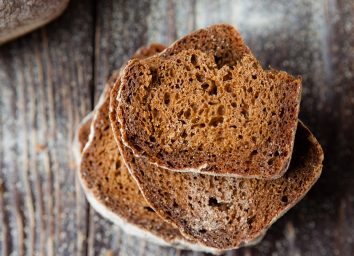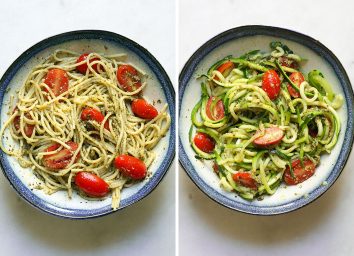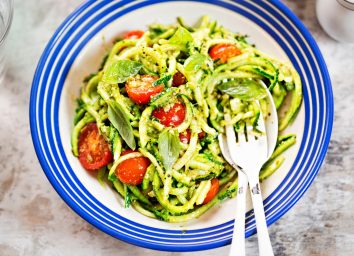The Best 13 Carbs for Women, According to Dietitians
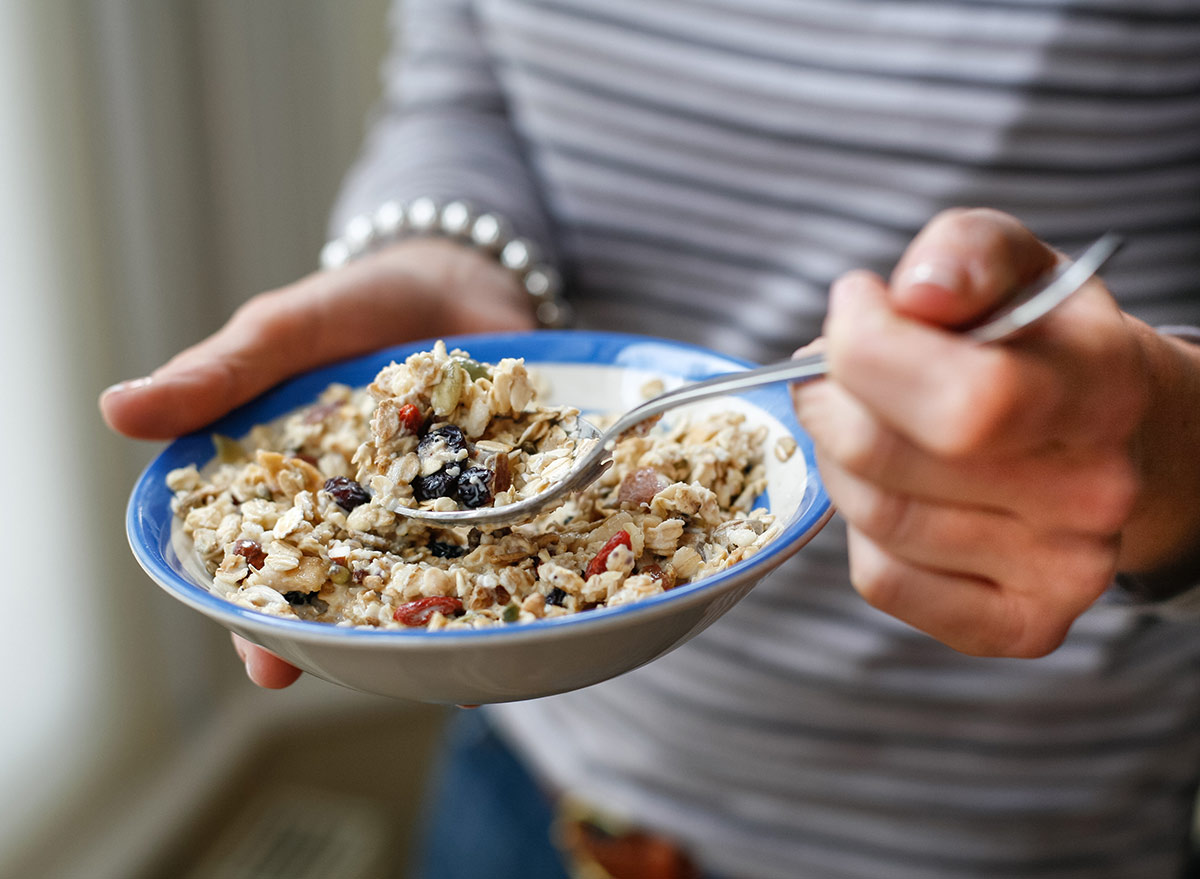
It’s no secret that carbohydrates take the cake for the most-feared food group in today’s diet culture, but there’s nothing to be afraid of. In fact, experts say carbs are your friend—they can not only make a meal more satiating, but they can also provide you with some much-needed energy to power through your day. Still, not all high-carbohydrate foods are created equal—so, what are the best carbs for women? We talked to several dietitians to find out.
“Carbs give your body energy so that it doesn’t have to burn protein or dietary fat—which have other, more important roles in your body,” says Amanda A. Kostro Miller, RD, LDN, who serves on the advisory board for Fitter Living. “Getting enough carbs fights off fatigue and gives you energy to live a healthier lifestyle full of activity and exercise.”
Not to state the obvious here, but there’s a big difference between chowing down on a farro bowl and a frosted donut.
“The best sources of carbs to include in your diet are whole grains and other unrefined options,” says Vive Nutrition founder Andres Ayesta, MS, RD, LD, CSCS, CSSD. “These kinds of carbs are more nutrient-dense and high in fiber—which is key for keeping you full and feeding the good bacteria in your gut. Additionally, unrefined carbs are absorbed more slowly into the bloodstream than refined carbs (eg. white flour, white rice, candy, and sugary drinks). This helps to avoid a spike in blood sugar that can cause you to feel lethargic and get hungry again soon after you’ve eaten.”
With all of that in mind, here are a handful of carb-rich foods that you should add to your shopping cart pronto—trust us, your body will thank you. And for more healthy eating tips, be sure to check out our list of 21 Best Healthy Cooking Hacks of All Time.
Whole-grain bread
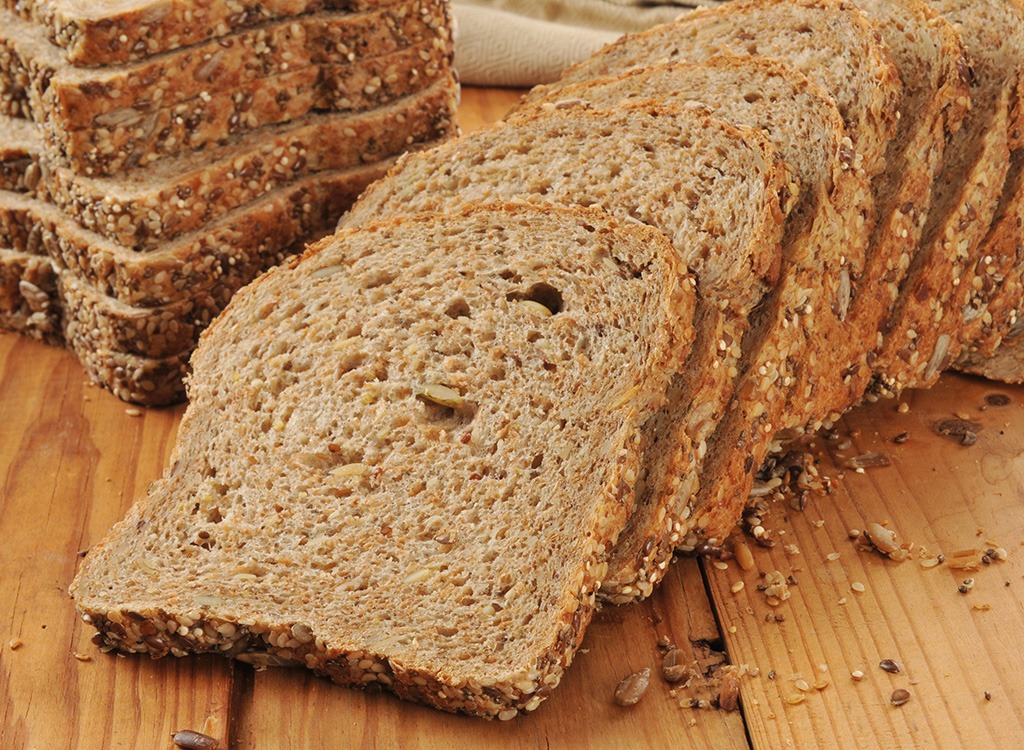
Whether you use it to make a classic PB&J or some avocado toast, experts agree that whole-grain bread is one of the best carbs you can eat.
“Whole-wheat bread is a good source of magnesium, which is key in keeping your parathyroid gland working,” says Gina Keatley, CDN of Keatley Medical Nutrition Therapy in New York City. “That means maintaining your metabolism and bone density. There is also some zinc in the germ of the wheat which can help maintain a good immune system.”
To make sure that your bread is 100% whole grain, just be sure to check the nutrition label first or look for the Whole Grain Stamp on the packaging. Or look for one of these Best Store-Bought Breads, According to Experts.
Quinoa

There’s a good reason why this ancient grain has become super trendy in recent years.
“Quinoa is a powerhouse carb source and also contains 8 grams of protein per cup, while also providing all nine essential amino acids (rare in plant-based foods),” says Ayesta. “It’s very high in fiber, manganese, magnesium, and phosphorus. It also contains high levels of two plant compounds—quercetin and kaempferol—which have anti-inflammatory, anti-cancer, and anti-depressant effects.”
Miller suggests using it in place of Use it in place of rice for an extra boost of satiating fiber and protein.
“Even though brown rice and whole grain pasta are also nutritious, quinoa contains even more valuable nutrition than these options,” she says.
Quinoa can be tossed into salads, used as a side dish, or even made into oatmeal-like breakfast porridges—the possibilities are endless. Or try one of these 34 Quinoa Recipes for Weight Loss.
Sweet potato
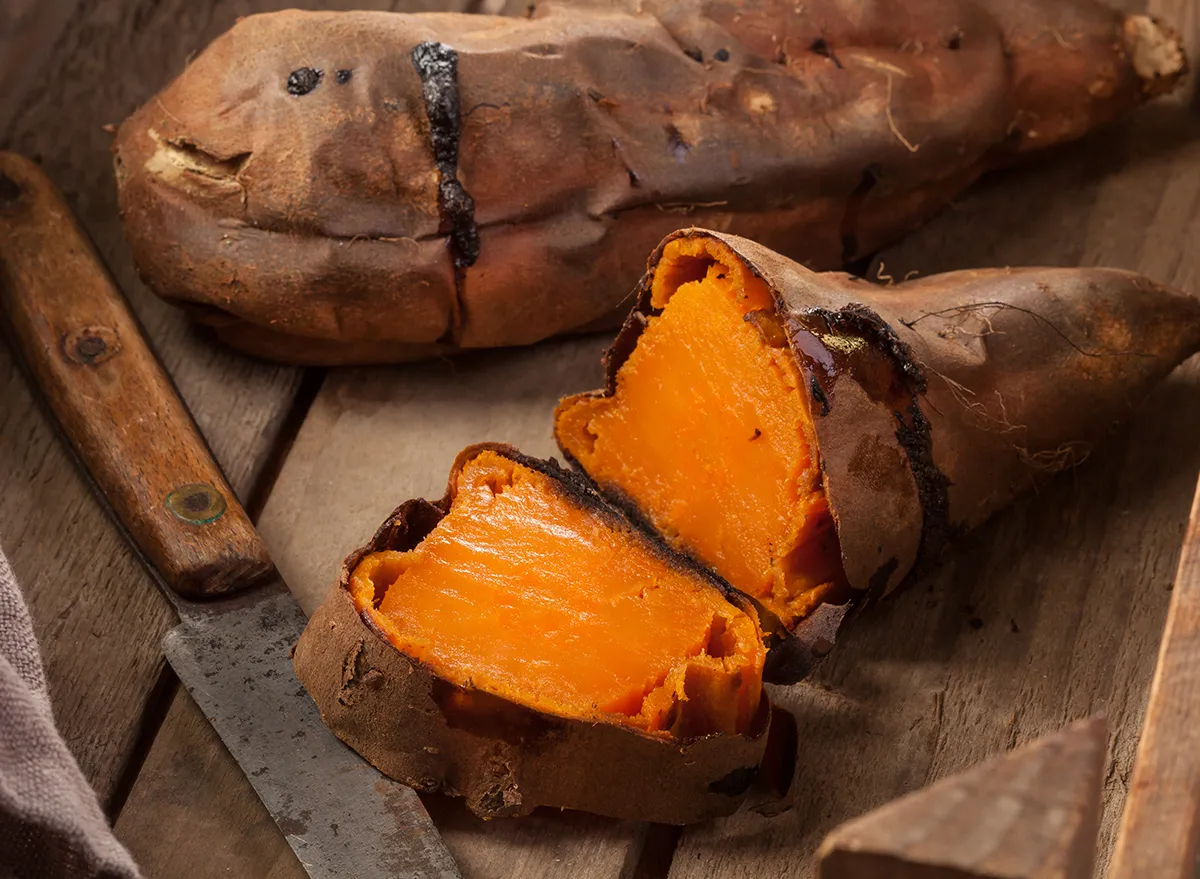
Sweet potatoes get their bright orange color from beta-carotene, an antioxidant that’s converted to vitamin A in the body, according to Ayesta.
“Vitamin A is important for eyesight, the immune system, and can help decrease acne,” he says.
Not only that, but Miller adds that sweet potatoes are packed with vitamin A, a nutrient that helps to keep your skin healthy and protect your body from infection. Sure, you can roast whole sweet potatoes, make baked fries with them, or even mash them up, but Miller recommends slicing them into 1/2-inch thick rounds and popping them in the toaster before topping them with your favorite spread. Or try one of these 25 Healthy and Delicious Sweet Potato Recipes.
Papaya

Don’t overlook this mildly sweet tropical fruit on your next grocery shopping trip—according to Keatley, it’s another excellent source of beta-carotene, which can keep your hair, skin, and nails looking good. It can also aid in the digestion of proteins.
By the way, 1 cup of papaya contains 88 milligrams of vitamin C, which is 98% of your recommended daily allowance. So, this is a smart choice for staving off colds and keeping your immune system in tip-top condition.
Try it in a smoothie or a salad with shrimp—and when you’ve got a sweet tooth, dried unsweetened papaya serves as the perfect healthy snack.
Banana
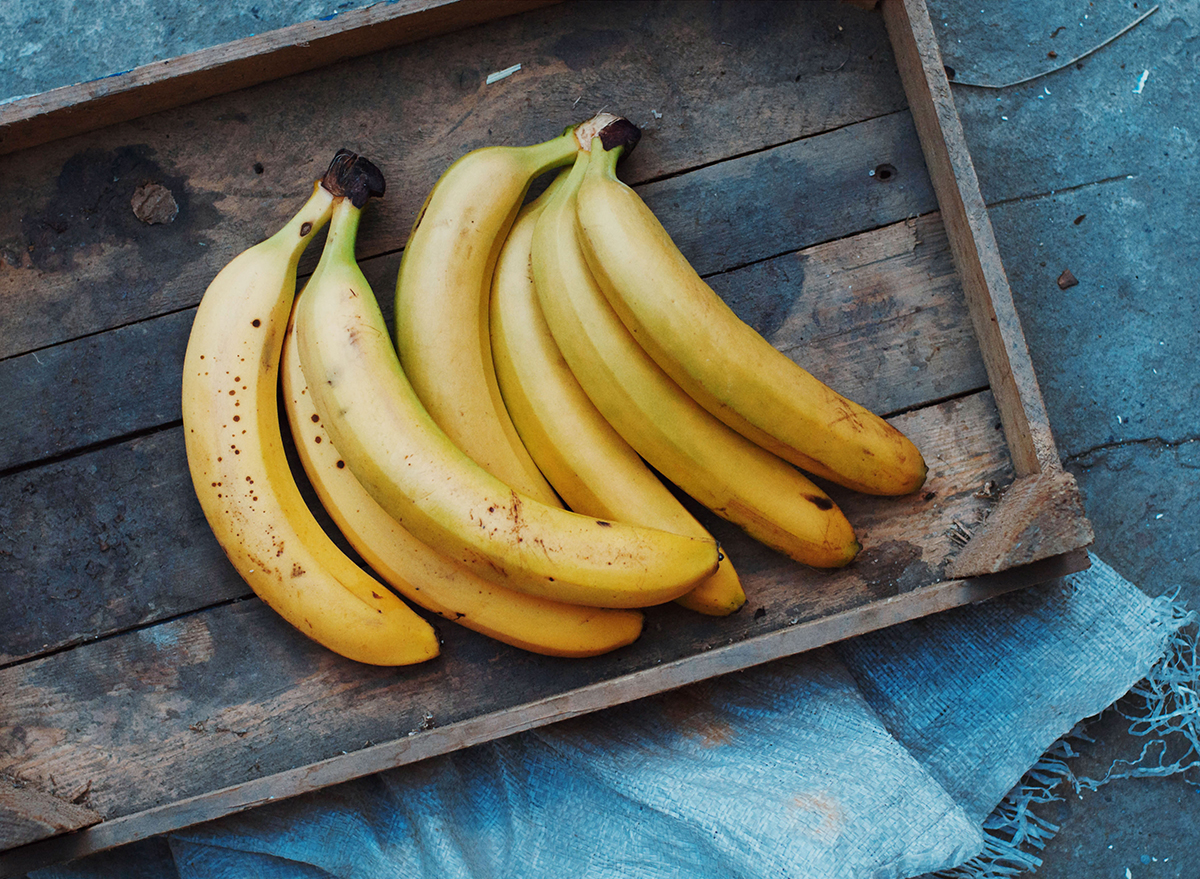
The United States Department of Agriculture (USDA) recommends eating two servings of fruit per day, and fortunately, one medium or large banana counts as two servings.
“So, you’re getting more bang for your buck,” says Miller.
Ayesta adds that bananas are a stellar source of potassium, which is essential for fluid balance, muscle function, and nerve signals. Bananas also contain vitamin B6, which is involved in the production of serotonin and therefore plays a role in stabilizing your mood.
Ayesta recommends tossing a banana in your smoothie for some added sweetness without any refined sugar—but you can also add it to oatmeal, cereal, and toast with peanut butter. You can even make a healthy homemade vegan “ice cream” by freezing and then pureeing it.
Peanuts
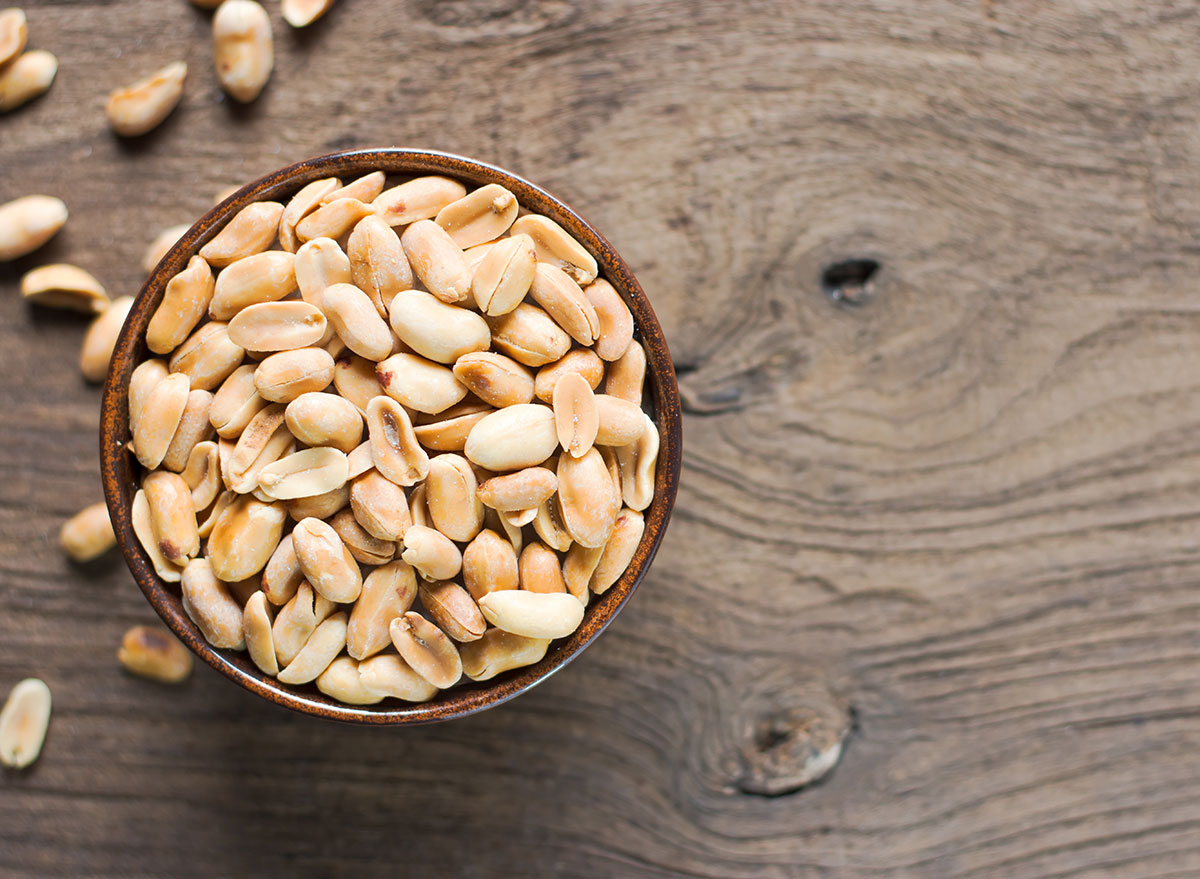
With flu season in full swing, Keatley highly recommends adding this tasty legume to your diet for the sake of your immune system.
“Peanuts are an excellent source of copper, which helps to produce red and white blood cells,” she says.
Since peanuts, like all nuts, are a calorie-dense food, you may want to measure out a 1-ounce serving (which is typically about 28 peanuts). Peanuts are commonly categorized as a fatty food, but they are also full of good carbohydrates for your body. Snack on them solo, add them to a homemade trail mix, or use them to add texture to a salad or grain bowl.
Mushrooms
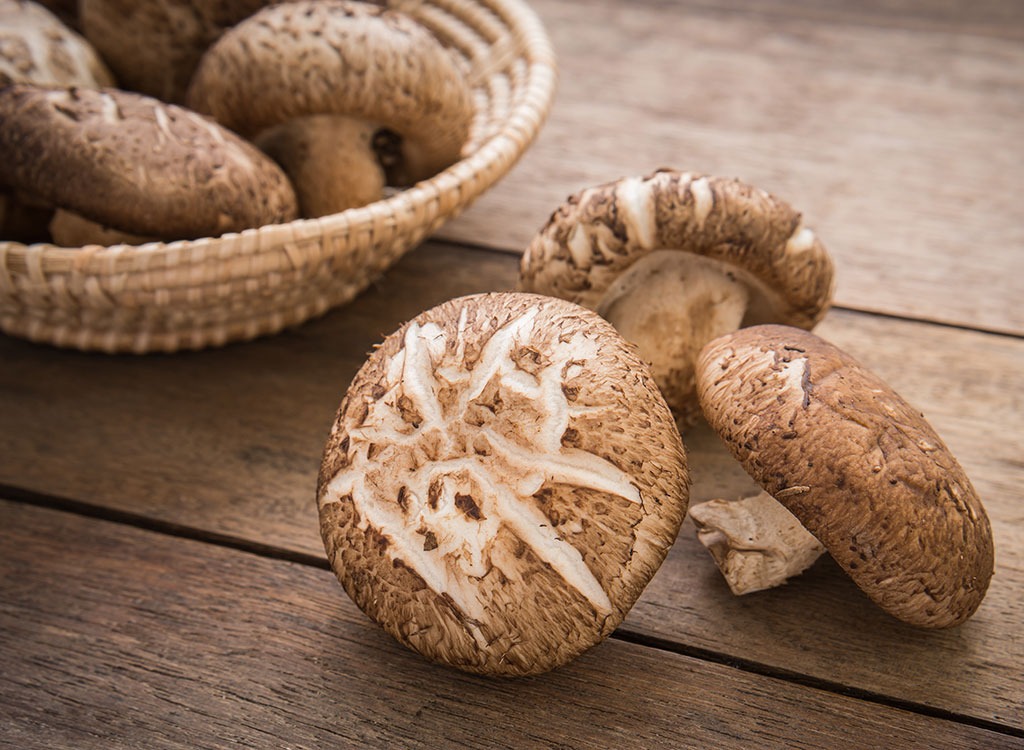
Did you know that mushrooms are one of the only plant-based sources of vitamin D?
“Vitamin D is a really important nutrient that helps with countless functional processes, including bone health,” says Miller. “Even though we do get some from sunlight, often the risk of skin cancer when exposed to sunlight outweighs the benefit of getting vitamin D.”
Not only that, but vitamin D has been linked to heart health (with a correlation between vitamin D deficiency and cardiovascular disease). Studies have also shown a link between lower vitamin D status and higher body weights.
With that in mind, feel free to incorporate these fungi into your omelets, sauces, and stir-frys—or just sauteeing them as a dinner side. Or try one of these 23 Healthy Mushroom Recipes for Meatless Dinners.
Oats
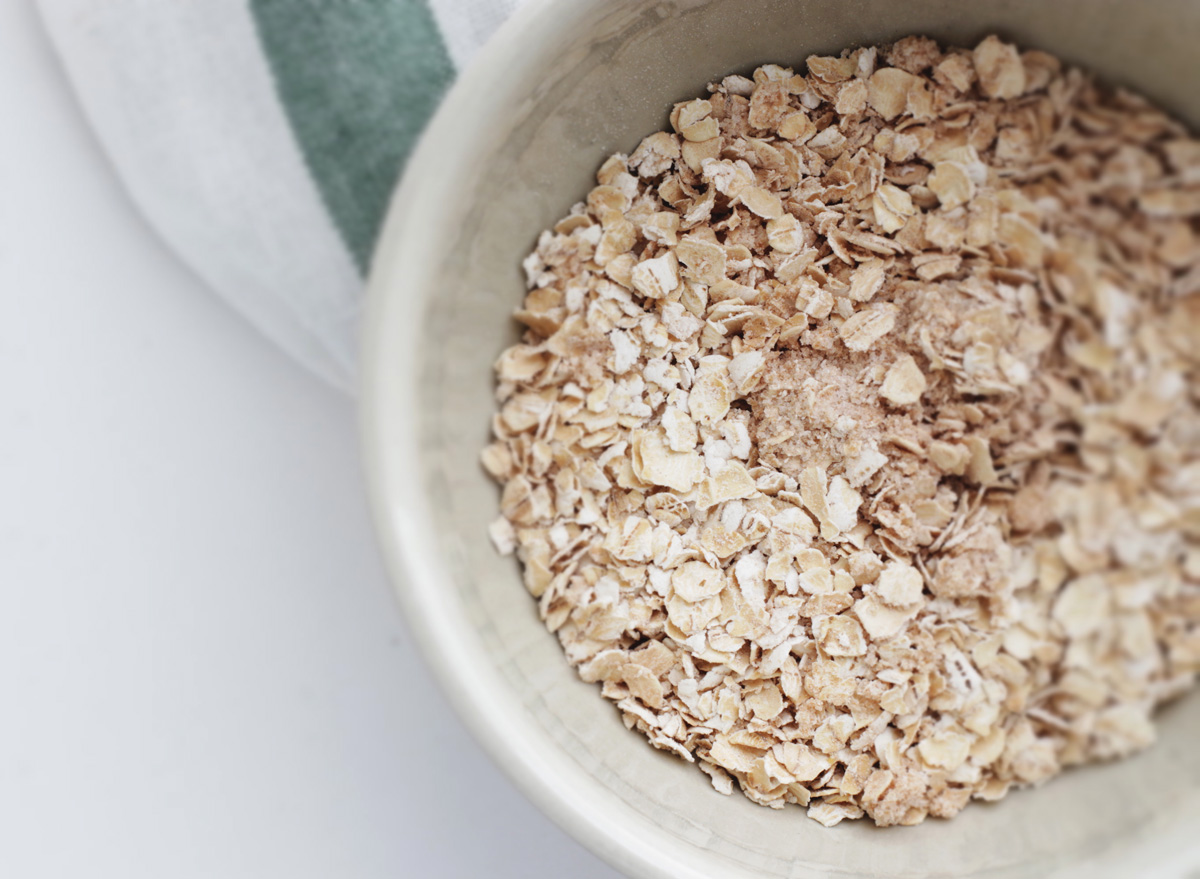
You definitely can’t go wrong with a bowl of good old-fashioned oatmeal to start your day.
“Aside from the cholesterol-reducing benefits, oats are a good source of phosphorus which is essential in maintaining good bone structure as we age,” says Keatley.
Ayesta also notes that oats are super high in a type of soluble fiber called beta-glucan, which helps to regulate blood sugar levels, reduce cholesterol levels, and promote healthy gut bacteria.
“They also contain a type of antioxidant called avenanthramide, which helps reduce inflammation and lower blood pressure,” he says.
Oats are surprisingly versatile—you can use them to make everything from pancakes and veggie burgers from scratch to homemade granola and energy bars. Or these 15 Best Oatmeal Recipes for Weight Loss.
Blueberries
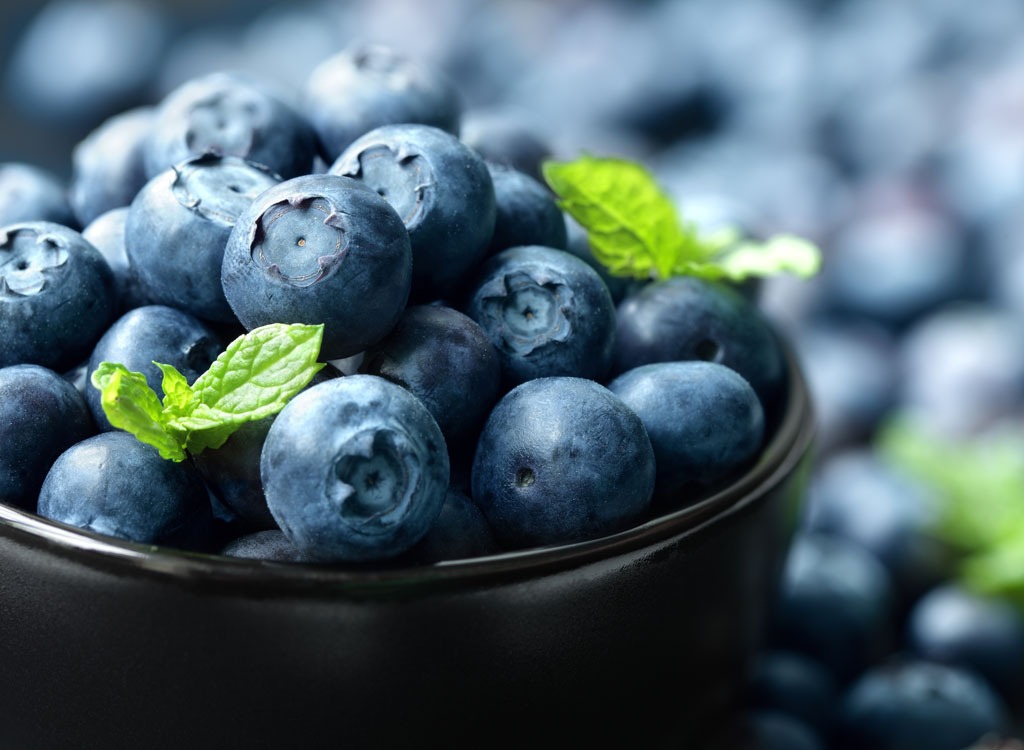
What’s not to love about blueberries? As Keatley points out, they’re low in sugar but high in fiber.
“Blueberries are a great carbohydrate option because they are low in calories and packed with nutrients,” says Ayesta. “Out of all fruits and vegetables, blueberries have one of the highest antioxidant levels. Some interesting studies in animals have found that blueberries seem to improve brain function and reduce the effects of aging.”
By the way, Miller says blueberries can play a role in your cognitive health, too. One study found that eating about one cup of blueberries per day improved mobility and cognition in older adults.
Whether you snack on them plain or add them to smoothies, this is one carb source you definitely don’t want to overlook.
Kidney beans
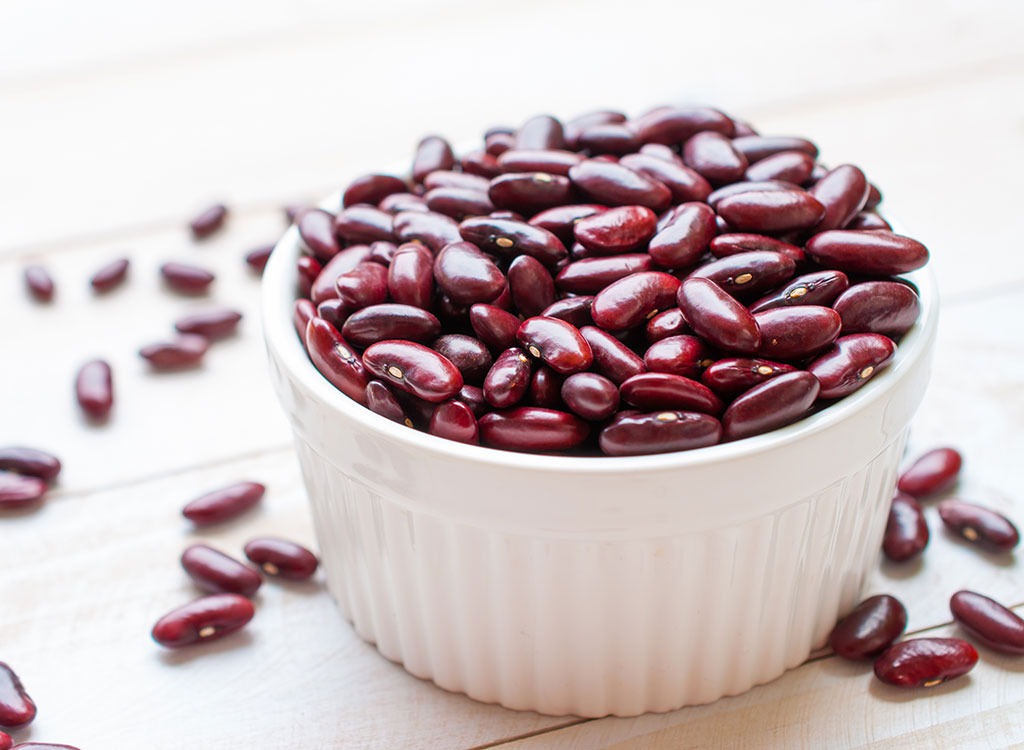
If you’re looking for a high-fiber food that’ll keep you full for hours, look no further than kidney beans. They’re a great source of plant-based protein as well and can moderate your blood sugar levels while also promoting colon health.
“Kidney beans have a ton of folate which is very important if you’re a woman who could get pregnant as it reduces the risk of spina bifida,” says Keatley.
As for how to eat them, consider using them in a three-bean chili or minestrone soup.
Black Beans
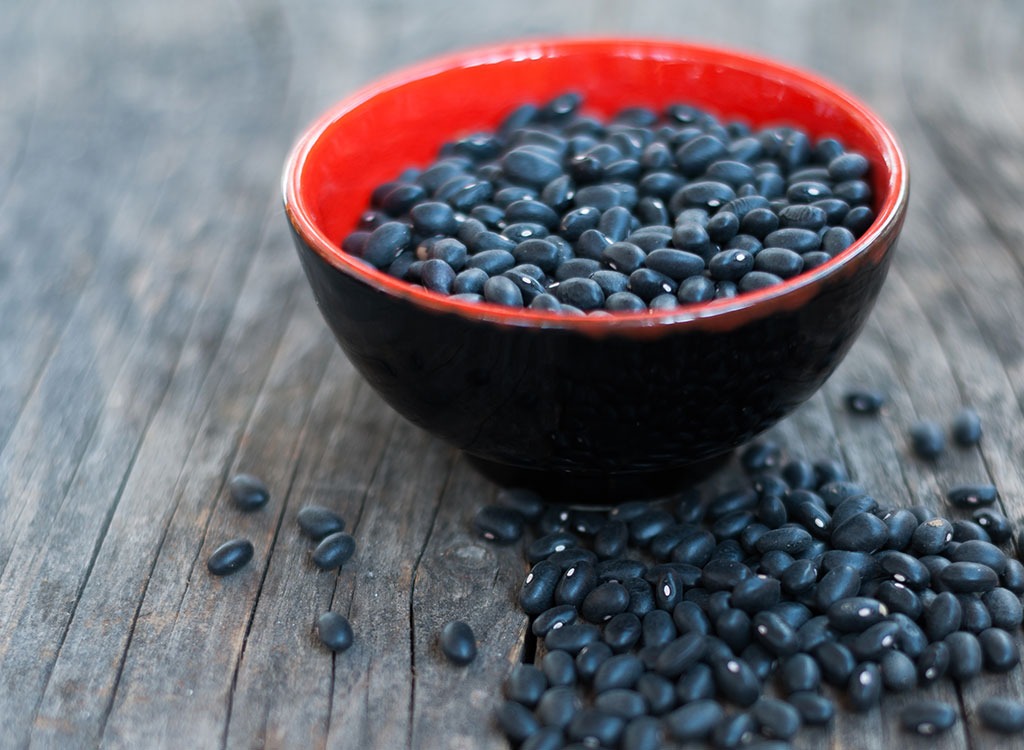
According to Ayesta, black beans are an excellent source of both fiber and protein—which makes them the perfect choice when you need a satiating meal that’ll keep you from mindless snacking.
“They’re perfect if you’re trying to incorporate more plant-based protein options into your diet,” he says. “They also have a lower glycemic index than many carbohydrate foods, preventing a blood sugar spike after eating.”
Like kidney beans, Ayesta says black beans are high in folate, which is important for women during pregnancy.
You can use black beans as a base for vegan or vegetarian burritos, in egg scrambles, and in a homemade dip or spread.
Dark chocolate
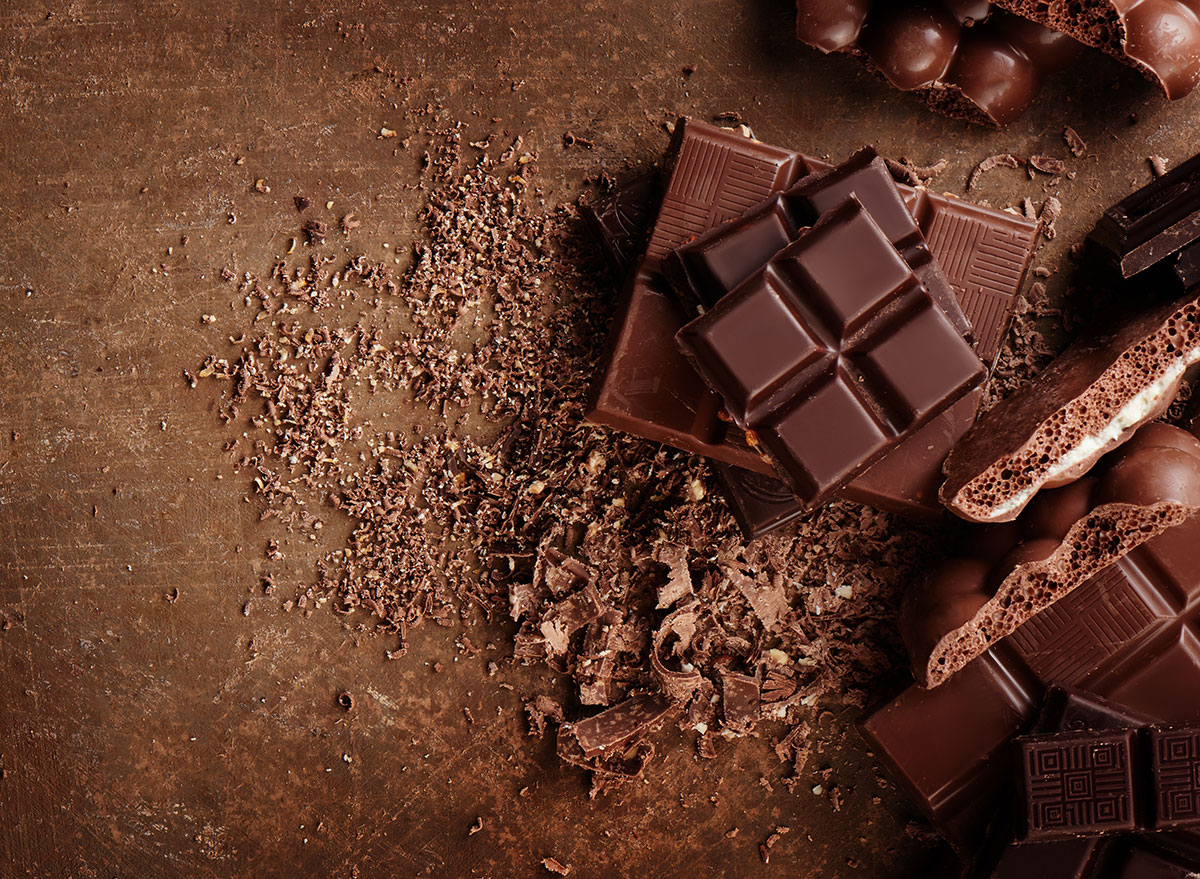
That’s right—enjoying a little bit of chocolate now and then is a ritual that dietitians can get behind. Sound too good to be true? According to Ayesta, dark chocolate has some unique benefits for women.
“Studies have shown that dark chocolate can help alleviate menstrual cramps, likely due to the magnesium content,” he explains. “It’s also a source of iron, copper, magnesium, and plenty of antioxidants.”
This sweet treat is chock-full of flavonoids, and eating is associated with a 30% reduced stroke risk and 40% reduced heart disease risk.
For the sake of reaping the maximum health benefits, Ayesta recommends choosing dark chocolate that is 85% cocoa or higher. You should also limit your serving size to about one to three ounces per day.
Blackberries
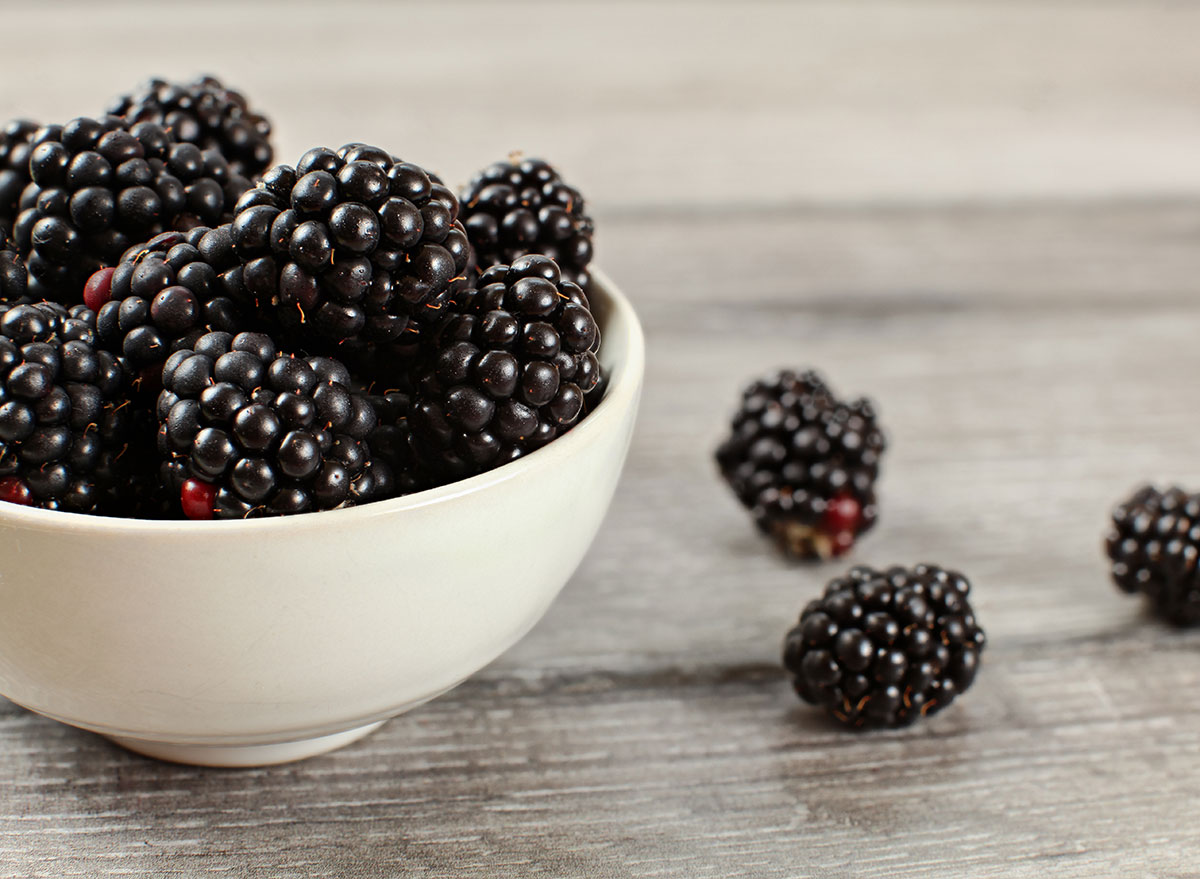
Blueberries aren’t the only berry that’s bursting with health benefits. Miller says that blackberries (and other dark berries) are particularly high in antioxidants, which can fight oxidative stress on the body and potentially slow the rate of cognitive decline as you age. They also provide vitamin K, folic acid, and manganese.
“Antioxidants inhibit the release of pro-inflammatory substances (like cytokines and CRP) and work against harmful reactive oxygen species in the body,” she says. “Diets that are rich in antioxidants can help reduce pain (i.e. joint pain), help your body function more effectively and may even help preserve cognitive function in the long term.”
Did we mention that blackberries are very high in dietary fiber? 100 grams of this fruit provides about 20% of your recommended daily allowance.
You can use them to make homemade jam, dip them into chocolate hummus, or add them to a yogurt parfait, you can’t go wrong with blackberries.
Now, for the men! Here are the 18 Best Carbs for Men to Help You Lose Weight.
